
You have successfully controlled swarming in your colonies so they have remained strong. The weather has been good and the nectar has flowed. You have added supers as the bees needed space and have a good honey crop. That is our ideal dream. The problem is that things don’t always work out that way. UK weather is notoriously fickle so each year starts in hope and anticipation. Some years our hopes are realised. Sometimes they aren’t. Beekeepers are among the most optimistic people in the world. After a mediocre or bad season, they will say, ‘Well, there’s always next year. That’s bound to be better’.
Most beekeepers start with the aim of getting their own delicious honey. As you have worked with your bees and gained experience, I hope your appreciation of these fascinating insects has widened. Sometimes I think that dealing with the honey crop is a quite demanding but it is still good to see the golden liquid spinning from the combs.
LEAVE THE BEES WITH ENOUGH FOR THEIR WINTER AND SPRING NEEDS
First things first. Your bees have stored honey for their own purposes. Properly stored, it will stay good throughout the winter and provide food for the colony. If you want to remove some of their stores, you are responsible for ensuring they do not run short. This is not just over the winter but at any time when the weather prevents them foraging or when little nectar is available. Remember how cold some of our springs have been recently leading to the need for stores.
This story is from the {{IssueName}} edition of {{MagazineName}}.
Start your 7-day Magzter GOLD free trial to access thousands of curated premium stories, and 9,000+ magazines and newspapers.
Already a subscriber ? Sign In
This story is from the {{IssueName}} edition of {{MagazineName}}.
Start your 7-day Magzter GOLD free trial to access thousands of curated premium stories, and 9,000+ magazines and newspapers.
Already a subscriber? Sign In
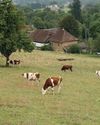
How to Buy a Smallholding in France- Long-time smallholder Lorraine Turnbull looks at the practicalities of moving to rural France
Aspiring smallholders are continually thwarted by the prices of smallholdings and property with land located within the UK. Even the humblest croft in Scotland comes with a substantial price tag and conditions which would make even an adventurous wannabee consider carefully. But all is not lost. For those willing to take the adventure of a lifetime, there is always Europe, and one of the most popular places is France.

Meet the Bournemouth goats and their supporters
These capricious animals are hard workers preserving the natural habitat

Still warm enough to sit outside with a Pizza
Henrietta Balcon uses fresh figs to create an unusual dish at Harvest time
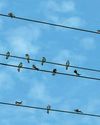
Goodbye to the birds of spring and summer
If you look and listen you might be able to see them preparing to leave says The RSPB

Get ready for the colder weather in the warmth of late summer
Claire Waring advises on doing the best to make sure your colonies survive until next spring
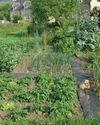
Preparing the Veg Patch for Winter
Lee Senior says, a well-run plot can excitingly continue to produce good quality, tasty, fresh food for much of winter
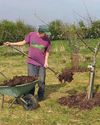
Time to prepare to plant your orchard
Wade Muggleton, smallholder and author of The Orchard Book, shares his practical experience so you can create your own fruit collection
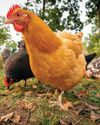
Choosing feed for the autumn
As autumn approaches, Joanna Palmer, nutritionist at the Smallholder Range, offers advice on choosing the right feed to support your adult birds through their annual moult and ensure your young birds grow and finish well at this time of the year.
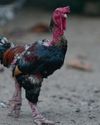
Vet advice from an experienced poultry vet
Reflecting on how much the humble hen has helped people world wide plus advice on stopping the scourge of red mite

Give your hens some support
Paul Donovan looks at the right and wrong ways of handling birds